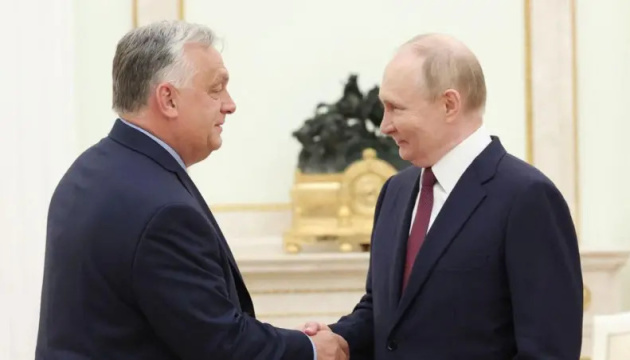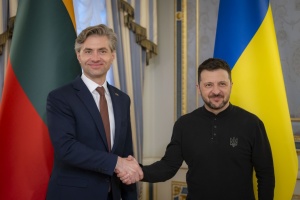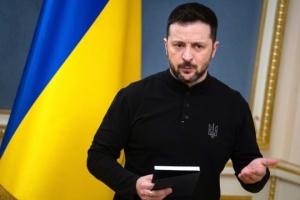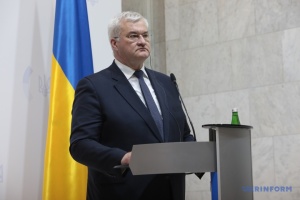
Explaining complex things in simple words: State sovereignty, Orban’s “peacekeeping”, European defense strengthening
STATE SOVEREIGNTY
On July 16, Ukraine celebrates the Day of Adoption of the Declaration on State Sovereignty.
- On July 16, 1990, the Verkhovna Rada of Ukraine proclaimed the supremacy of its laws over the laws of the USSR, the completeness and indivisibility of the republic's power within its territory, as well as independence and equality in international relations.
- The Declaration proclaims Ukraine's right to its own armed forces, internal troops, and state security agencies. Ukraine undertook not to spread, manufacture or build up nuclear weapons.
- The idea of Ukraine's neutral status, reflected in the declaration back in the 1990s, demonstrated Ukraine's sincere desire for peace. However, Moscow's new imperial policy forces us to reconsider our view of collective security.
- The Declaration of State Sovereignty became the first step towards independence: it prepared the conditions for the adoption of the Act of Proclamation of Independence of Ukraine on August 24, 1991.
- Besides Ukraine, all the republics of the SSSR, as well as the autonomies within the RSFSR, adopted their declarations of state sovereignty. However, the latter's path to freedom still continues.
ORBÁN’S “PEACEKEEPING”
- The European Union did not empower Hungary to make diplomatic efforts on its behalf.
- Prime Minister Viktor Orbán's negotiations with Putin contradict EU policy and may lead to unprecedented decisions in the context of the Hungarian presidency of the Council of the European Union.
- The function of “mediation” assumes the presence of a request from both parties for mediation between them. Ukraine did not ask Hungary for such a service.
- Orbán's trips are an imitation of the peacemaking process, with the aim of questioning the progress on the path to peace in Ukraine among the participants of the Global Peace Summit.
- As long as Moscow has not abandoned its genocidal and invasive plans for Ukraine, any dialogue with it is unpromising.
EUROPEAN DEFENSE STRENGTHENING
During the NATO summit in Washington, the U.S. and Germany agreed on the deployment of American long-range Tomahawk cruise missiles in Germany.
- Tomahawk missiles stationed in Germany are capable of hitting targets on Russian territory.
- The decision to place U.S. long-range missiles in Germany is a natural response to security challenges caused by Moscow's aggressive policy.
- Russia was the first to disrupt the balance of power in Eastern Europe by launching full-scale aggression against Ukraine and deploying tactical nuclear weapons in Belarus.
- The Kremlin's latest threats in connection with the decision to deploy U.S. missiles in Germany do not add anything new to the already familiar rhetoric of nuclear blackmail.
- Russia stubbornly tries to intimidate the free world
Center for Strategic Communication and Information Security



